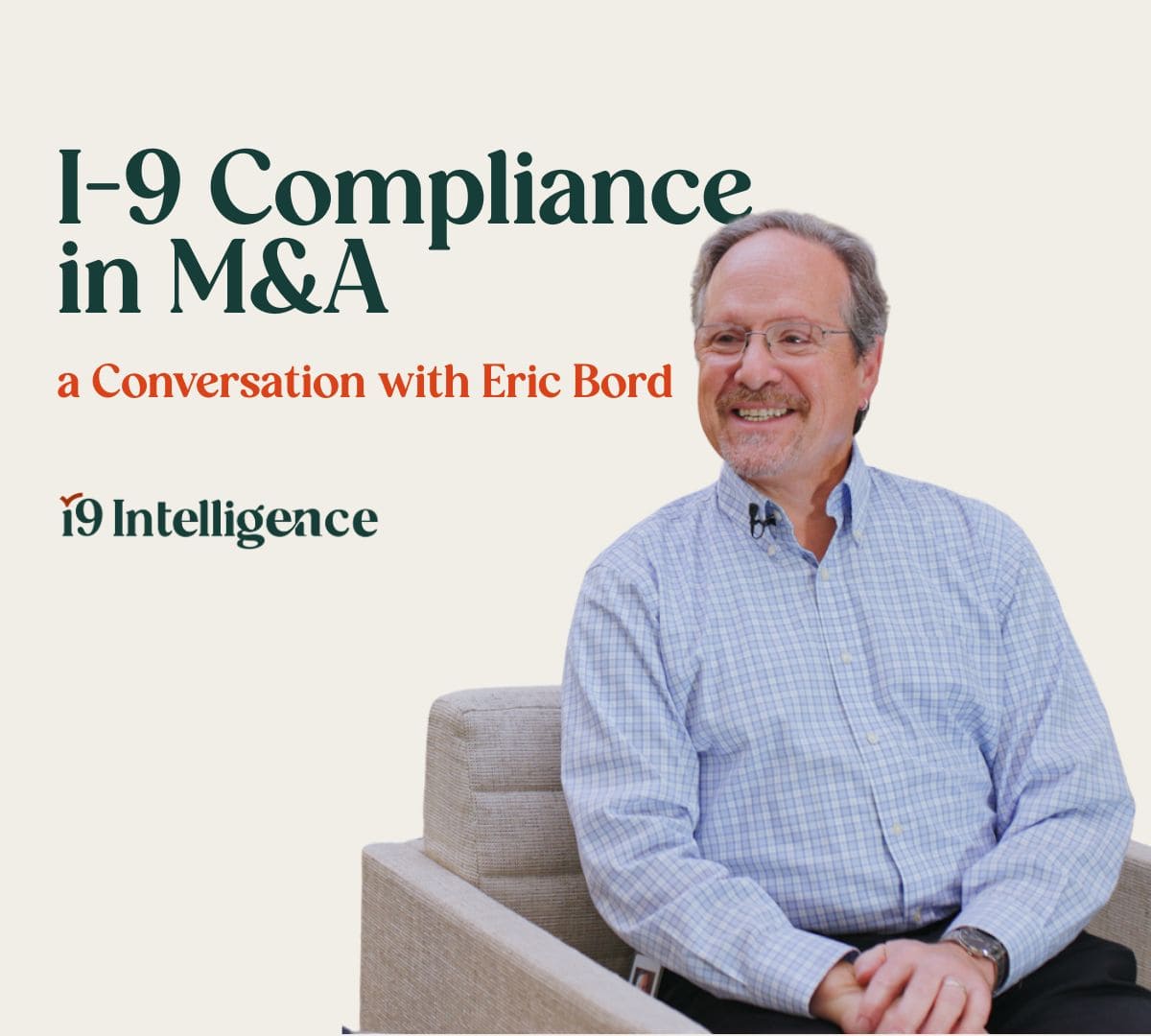
I-9 compliance in M&A is emerging as a deal-critical factor for buyers, sellers, and lenders. In this conversation, Jed Butler, CEO of i9 Intelligence, sits down with Eric S. Bord, head of the immigration compliance and risk management practice at Morgan Lewis, to unpack why employment eligibility verification is no longer just an HR issue.
Historically viewed as a back-office function, the Form I-9 has now become a centerpiece of legal, financial, and operational due diligence. As Bord explains, I-9s are increasingly scrutinized in private equity deals, bank-financed acquisitions, and corporate restructurings.
In some cases, lenders have refused to finance transactions due to noncompliant or missing I-9s. Bord recalls a seller who lost three deals because of undocumented and poorly managed I-9 records.
Sellers often underestimate how many I-9s are missing or improperly completed. One way legal teams assess risk is by sampling records—e.g., all employees A-D surnames—and cross-referencing with payroll.
Companies may receive PDFs of I-9s but lack the corresponding electronic audit trails, rendering them noncompliant in the eyes of DHS. Bord is blunt: "Then you don't have I-9s."
From incorrectly accepted documents to signatures by unauthorized verifiers, many employers unintentionally introduce procedural errors that won’t hold up under scrutiny.
Bord outlines a tiered approach: representative sampling for low-risk scenarios, full audits for pre-deal cleanup, and legal triage when regulators are involved.
Common technical errors include wrong dates or missing fields; substantive ones relate to fraudulent documents or lack of authorization.
Companies can remediate before going to market or account for risk through escrow or valuation adjustments.
Many companies believe enrollment in eVerify absolves them of deeper I-9 obligations. But the statutory duty remains with the I-9 itself.
Bord warns that eVerify doesn’t confirm identity—only employment authorization. Fraudulent identity usage can leave employers exposed, both financially and reputationally.
With a massive funding boost, ICE is expected to expand both individual and employer-focused enforcement.
Compliance issues aren't confined to construction, agriculture, or hospitality. Public companies in energy and tech are also under scrutiny.
Before seeking buyers or funding, conduct a structured I-9 audit. Focus on records, documentation, and matching to payroll.
Bord recommends platforms purpose-built for I-9s with audit trails, not generic HRIS modules.
Mistakes often stem from siloed processes. Joint training ensures alignment across compliance, legal, and operations.
Whether you're preparing for a transaction, cleaning up your records, or facing an audit, i9 Intelligence helps you build a compliant, defensible I-9 program—fast. Schedule a Compliance Call and we'll assess your current state and outline a clear action plan, tailored to your risk level and goals.